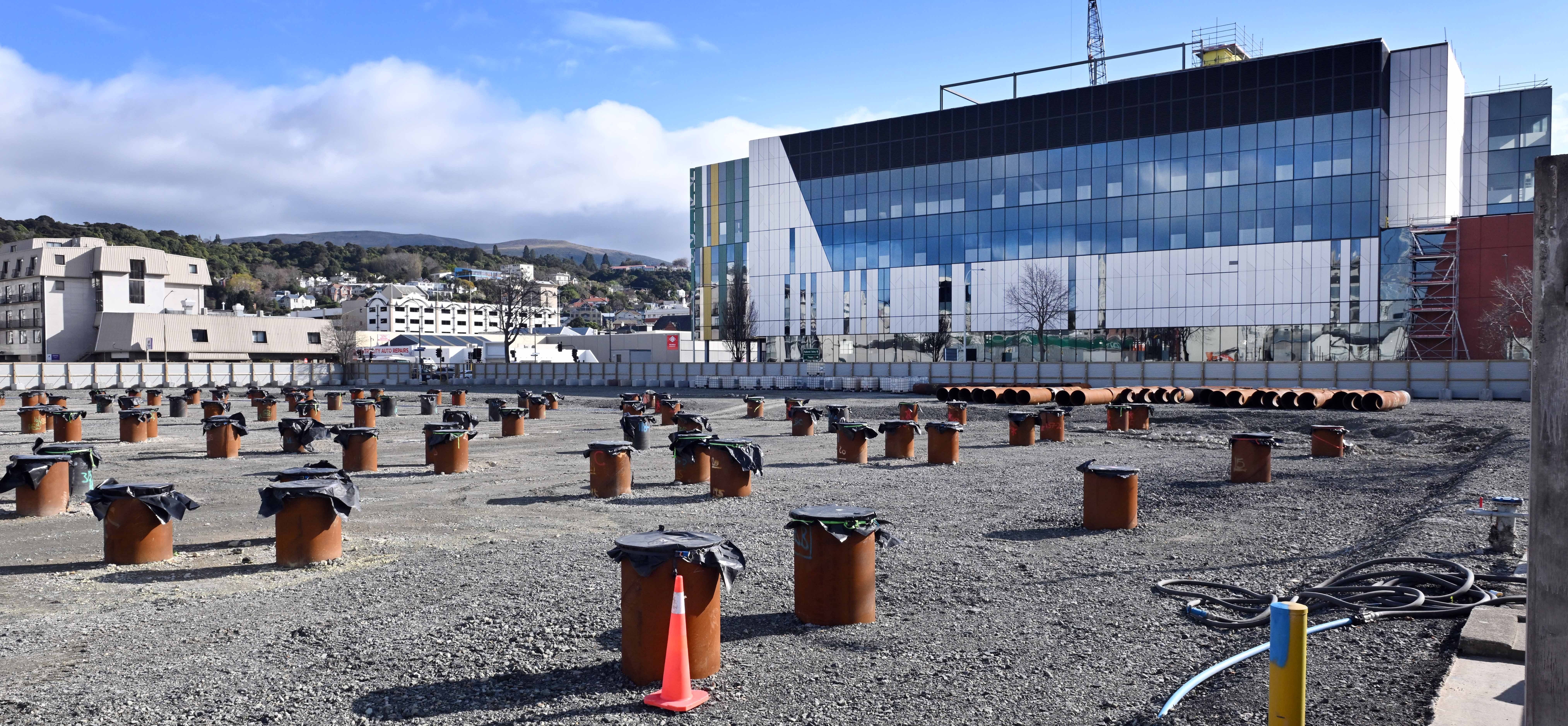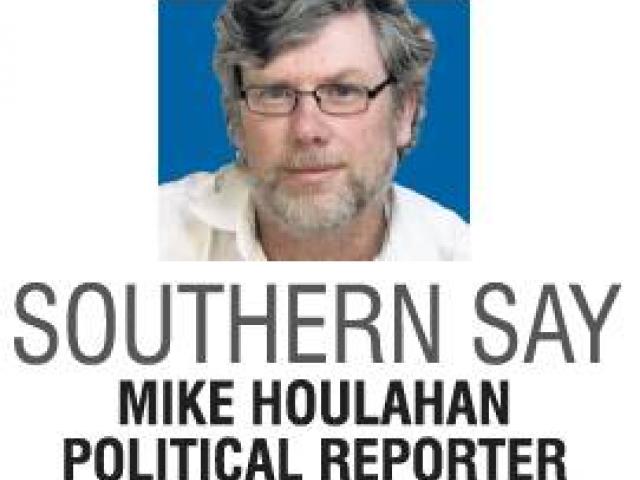
If all had gone to plan, some signs of construction should by now have been apparent just to the north of the ODT building, but instead we have a pile of piles in a large vacant lot and are left wondering if the millions spent to get the project to this point have been squandered.
Prime Minister Christopher Luxon has assured us that we are going to get a kick-a ... hospital (which is nice) and that it will cost $1.88billion — it most assuredly will not, no matter how much the government might wish it were so.

Obviously no budget is open ended, but it is politically painful to be the grinch that said no to building a hospital — as all southern government MPs will know.
In general, Penny Simmonds, Joseph Mooney, Miles Anderson, Mark Patterson and Todd Stephenson have had to sit quietly and sound appropriately concerned at constituent fury, but also not break ranks with the coalition’s position on this.
However, no such constraints face the South’s opposition MPs, and Rachel Brooking, Ingrid Leary, Scott Willis and Francisco Hernandez have been able to throw the kitchen sink and then some into the Save Our Southern Hospital campaign.
As the government is still undecided as to whether it will press ahead with the build as planned or try to cut costs by repurposing the old hospital in some way, this is an issue which will be as dominant in 2025 as it was in 2024.
The other main conversation point in southern politics has been the resource management law reform, partly because of the central place it has held in the government’s political agenda and partly because of the centrality of southern opposition MPs — and especially Labour Dunedin MP Brooking — in opposing it.
Whether it be fast-track consenting, water regulation or land usage, Brooking was there willing to die in a ditch to protect environmentally minded oversight of development.
The government is yet to play all its cards in this sphere, so expect this to run and run as well.
Although he was MP for Wellington Central, Grant Robertson has always been proud to be from South Dunedin, and it was back to Dunedin he came after retiring from politics.
As university funding and the aforementioned hospital are live issues in his new role as vice-chancellor of the University of Otago, Robertson may well need his political skills now more than ever.
At roughly the same time that Robertson left Parliament, Green Dunedin list MP Hernandez was, unexpectedly, arriving. A strange chain of circumstances had to unfold for Hernandez to become an MP, but unfold they did.
He has not looked out of place since his arrival either, making some cogent speeches and managing to ruffle a few government feathers in the process. His sometimes-benchmate, Taieri Green list MP Willis, can also count his first year in the House a success.
He has delivered some informed and informative speeches, and also did a good job aiding the hospital campaign.
In the red corner, Brooking and Taieri MP Leary can also look back on a satisfactory year. Although few MPs would pick being in opposition to being in government, each handled the transition well — indeed, better than many of their colleagues.
Despite not being in the forefront of Labour’s attack, each did some effective sniping from the sidelines and they played their parts in the many filibusters staged this year.
Both were also active in the hospital campaign, although they had to shrug off taunts about their commitment to the cause when they were in government. The same kind of accusations faced by the South’s government MPs these days, in fact.
Each handled the pressure differently. National’s Southland MP Mooney was the first to poke his head above the parapet with a considered, reasoned social media post which made no promises but emphasised his commitment to getting the South the best health service.
It has been a steady year for Mooney, who has been a measured select committee chairman. Next year, his committee will consider the highly-charged Responding to Abuse in Care Legislation Amendment Bill, and Mooney’s management of that will be his most important task yet in politics.
Invercargill National MP Simmonds had a decidedly mixed year.
She stumbled out of the starting stalls with issues at Whaikaha — Ministry of Disabled People, problems not of her making but which she failed to sort to the satisfaction of Luxon, losing the portfolio in a mid-year reshuffle.
However, the end of Simmonds’ year has been better, announcing her long-awaited (by her, if by no-one else) reforms to the vocational education sector. Like Mooney, Simmonds has a year in which to prove herself.
Waitaki National MP Anderson has had a quiet year, as befits a first-term backbencher. He has been an active member of the government’s large rural caucus, and now that he has learned the ropes will want to kick on.
New Zealand First Taieri list MP Mark Patterson, a fellow farmer, has not caused major waves in his out-of-Cabinet portfolios and is still to make wool king once again. However, he has been a loyal party man, busy in the House, and is a reliable pair of hands.
It has been a mixed year for Act New Zealand Southland list MP Stephenson. Inexperience has caught him out on a few occasions, notably in retaining shares which in the perception of the opposition raised conflict of interest issues, and not prepping properly for an interview.
On the plus side of the ledger, Stephenson has been an assiduous party whip and Act New Zealand’s expanded caucus remains disciplined despite its leadership moving into distracting Cabinet roles.
Parliament resumes on January 28; in the meantime both Simmonds and Patterson have had a go at being duty minister and the country seems not to have fallen apart, so that’s encouraging.











